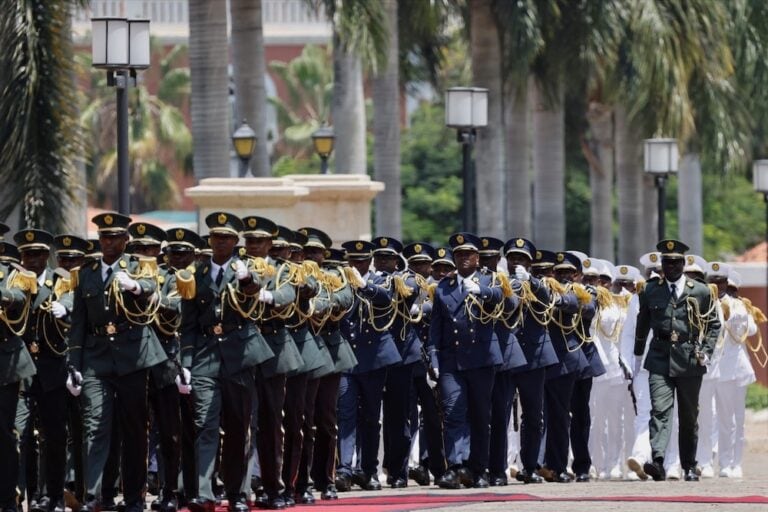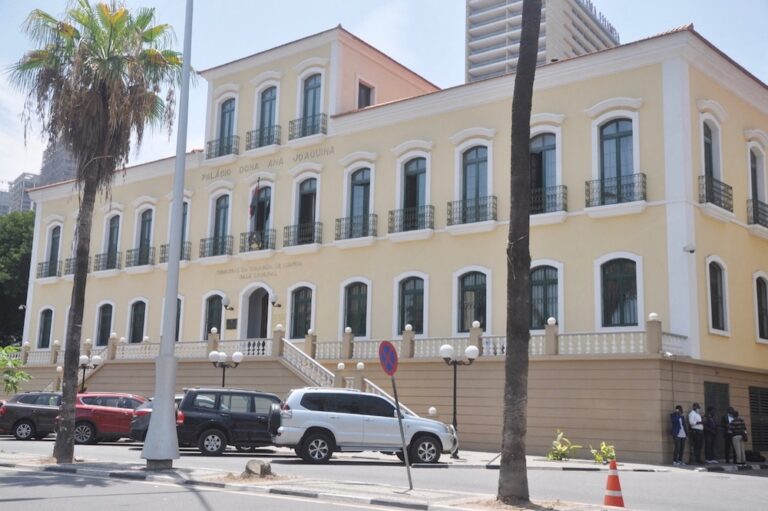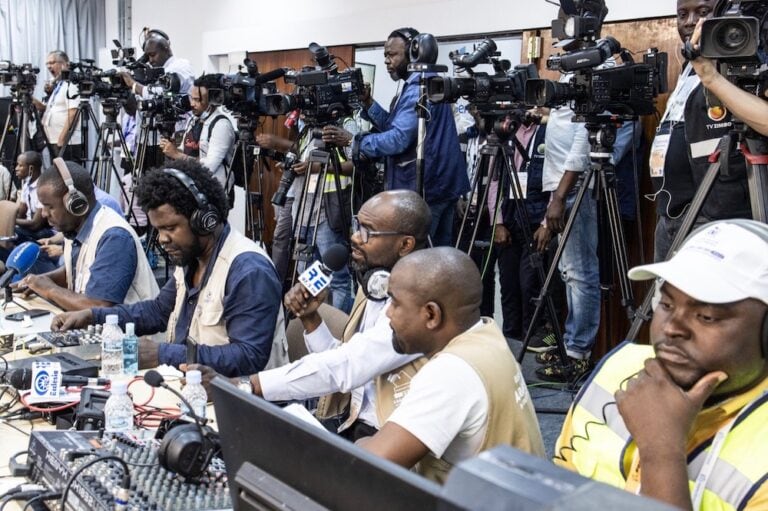**Updates IFEX alerts of 24, 21, 17, 10, 9, 7 and 6 March, 22 February and 13 January 2000, 17 December, 30, 25, 16, 3 and 2 November, 28, 22, 20, 19 and 18 October 1999** (CPJ/IFEX) – The following is a CPJ press release: ANGOLA: PROSECUTION WITNESSES CHARGE MARQUES “OBSESSED WITH DESTROYING REGIME” New […]
**Updates IFEX alerts of 24, 21, 17, 10, 9, 7 and 6 March, 22 February and 13 January 2000, 17 December, 30, 25, 16, 3 and 2 November, 28, 22, 20, 19 and 18 October 1999**
(CPJ/IFEX) – The following is a CPJ press release:
ANGOLA: PROSECUTION WITNESSES CHARGE MARQUES “OBSESSED WITH DESTROYING REGIME”
New York, March 29, 2000 — Prosecution witnesses in the trial of Angolan journalist Rafael Marques claimed yesterday that Marques had humiliated the government of President Eduardo dos Santos, tarnished the honor and dignity of the president himself, and demoralized the Angolan army, all by publishing an article in which he described President dos Santos as a “dictator,” according to CPJ’s sources in Luanda.
The Marques trial resumed yesterday and continued today in the Provincial Criminal Court of Luanda. It will probably conclude on March 31, sources in Angola told CPJ. Presided over by Judge Joaquim De Abreu Cangato, yesterday’s hearing lasted from 11 a.m. to 10:15 p.m. without a break.
Marques is being tried in secrecy and without benefit of legal representation. On March 23, Judge Cangato illegally disbarred Marques’ lawyer, Luis Nascimento, after Nascimento walked out of the courtroom to protest the judge’s refusal to hear an appeal he had filed to the Supreme Court of Angola on account of procedural irregularities in the trial. Nascimento has not been allowed back into the courtroom since then.
During yesterday’s closed hearing, Marques was allowed to call just one witness, Fernando Macedo, an Angolan human rights activist, according to sources inside the courtroom. Judge Cangato quickly dismissed Macedo’s deposition, which questioned the constitutionality of the charges against Marques. The judge subsequently ordered Macedo to leave the courtroom and “discuss those issues elsewhere.”
Testifying for the prosecution, José Leitão, director of President dos Santos’s cabinet, and Aldemiro Vaz de Conceiçao, the president’s spokesman, stated that Marques’ criticism of the head of state had gone “beyond the limits of free expression.” They charged that the journalist had tarnished the honor and dignity of the president and had humiliated the Angolan regime.
The two government officials further accused Marques of belonging to an international conspiracy obsessed with destroying the dos Santos government, and claimed that Marques’ writings have had the effect of “demoralizing the army” in its war effort against UNITA rebels led by Jonas Savimbi.
The prosecution also submitted as evidence a letter that Marques sent earlier this year to the president of the Angolan Parliament, protesting death threats issued against him by Mendes de Carvalho, a legislator from the ruling MPLA party. Carvalho had publicly warned that Marques, 28, would not live to the age of 40 if he continued to criticize the regime.
In his closing argument, Rui Ferreira, a lawyer for President dos Santos, urged Judge Cangato to be tough in his ruling since Marques had shown no signs of regret for his actions and had refused to “cooperate” in court. Ferreira recommended that “destabilizing the army” be added to the charges and that Marques be imprisoned for the longest time possible.


